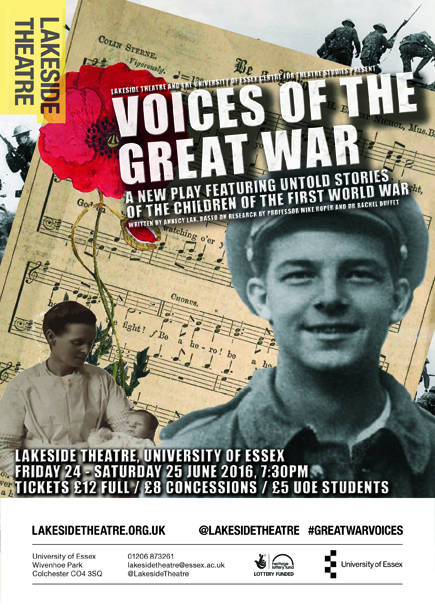Contributed by Michael Roper (Centre Member and Professor of History at University of Essex)
We’ve been doing a last ditch effort to publicise the collection day, contacting local history groups, libraries and archives, day care units, and chasing people up by word of mouth. We are moving towards our target – around 10 confirmed so far – but we are hoping others will confirm during the next couple of days, and there may well be some who drop in on the day.
YESTERDAY I had a long conversation with David Savill, artistic director of Age Exchange, about the format of the event. We want to differentiate it as far as possible from the antiques roadshow idea, with the emphasis being on the participants and their stories rather than the artefacts themselves. Because there are constraints with digitisation (it is very time-consuming), we are asking people to select one or a couple of objects that they feel are particularly significant to them. The grounds for choice might be personal, such as what insights it gives into their ancestor/s and family history; it could be about what insight it gives into the nature of the First World War; or it might be about the object’s value in terms of rarity or connection to known events. Whatever, we want people to choose for themselves rather than be guided by us or a narrow sense of ‘historical value’. We are hoping to do interviews of up to 45 minutes, and will focus on three themes: what people know about the object and its history; why they have chosen it; and any family/personal stories associated with the object. We’ll also film people during the interviews and in the break-out area, so we can find out more about why people have come forward and what they thought of the interview/recording process.
There are lots of practical issues to deal with: securing parking for the participants and Age Exchange, minimising access issues in a campus that sits on stilts, arranging catering, dealing with unexpected summer refurbishments, and organising travel for those that don’t have it. I don’t think we had fully anticipated the mobility issues associated with an event like this, but perhaps we should have, given the likely age of the children of the First World War generation.
TOMORROW I need to get the permissions forms ready – this is quite complicated too, as the day will involve interviews, digitising the objects, and filming participants.




